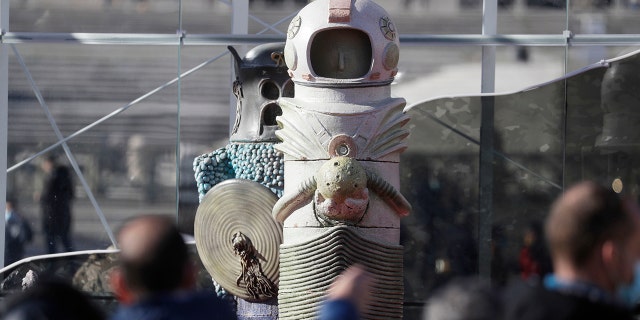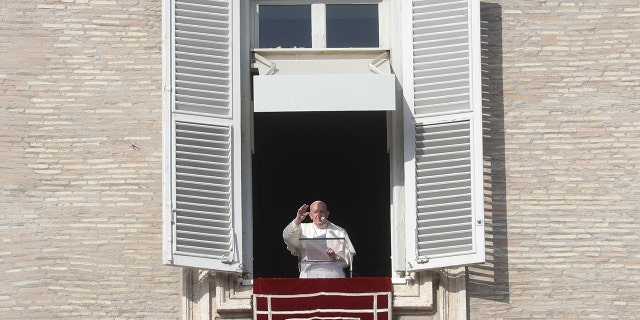Fox News Flash top headlines for December 20
Fox News Flash top headlines are here. Check out what’s clicking on Foxnews.com.
Pope Francis appeared to voice his displeasure with an unorthodox nativity scene in the center of St. Peter’s Square on Sunday.
Instead, the pontiff told visitors during his last Sunday blessing and address before Christmas that they should instead visit an outdoor exhibit under the square’s colonnade where 100 small traditional nativity scenes are on display.
According to Reuters, Francis said the exhibit demonstrated “how people try to use art to show how Jesus was born (and) … are a great religious education of our faith.”
POPE TO VISIT IRAQ IN MARCH, FIRST FOREIGN TRIP SINCE CORONAVIRUS PANDEMIC BEGAN: VATICAN
He made no mention of the nativity scene at the center of the square, which is a larger-than-life ceramic exhibit that includes an astronaut and a character reminiscent of Darth Vader, the villain from the “Star Wars” film franchise.

Faithful stop by the nativity scene as they wait for the start of Pope Francis’Angelus noon prayer in St. Peter’s Square, at the Vatican, Sunday, Dec.13, 2020. (AP Photo/Gregorio Borgia)
During his address from his window overlooking St. Peter’s Square, Francis warned that the holy day that marks the birth of Jesus has been “kidnapped” by consumerism and urged people to remember those who have nothing.
“Consumerism has kidnapped Christmas, (taking it) away from us,” he said. “There is no consumerism in the manger in Bethlehem. What is there is reality, poverty and love.”
Earlier this month, Francis reminded people that the Christmas season provides reason for hope amid the difficulties of the coronavirus pandemic. He urged the faithful to recall the true meaning of Christmas – the birth of Jesus – and lend a hand to the neediest.

Pope Francis delivers the Angelus noon prayer in St. Peter’s Square at the Vatican, Sunday, Dec. 20, 2020. (AP Photo/Gregorio Borgia)
“There’s no pandemic, there’s no crisis that can extinguish this light,” he said, pointing to the Christmas tree that had been installed in St. Peter’s Square days earlier.
CLICK HERE TO GET THE FOX NEWS APP
The Vatican displays different donated nativity each year, chosen by its municipal government. This year’s display received scathing reviews in the media and from visitors.
It was made between 1965 and 1975 by students and teachers in Castelli, an Italian town famous for ceramics. The astronaut is said to represent the lunar landings of the late 1960s and early 1970s, according to a description for visitors.
The Associated Press contributed to this report.
>>>details




